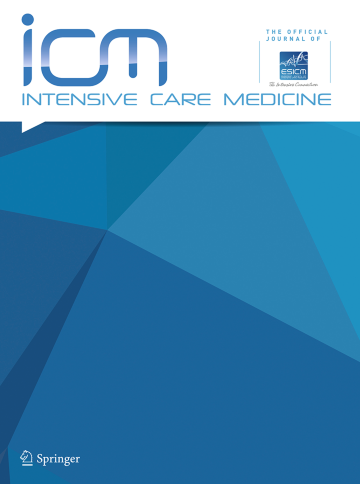Ethical tensions and professional attitudes toward circulatory death organ donation in the ICU: a systematic review.
IF 21.2
1区 医学
Q1 CRITICAL CARE MEDICINE
引用次数: 0
Abstract
PURPOSE Donation after circulatory death (DCD) represents a valuable opportunity to expand the organ donor pool. However, its implementation in intensive care units (ICUs) remains ethically and emotionally complex. ICU healthcare professionals (HCPs) play a pivotal role in this process, yet their attitudes, knowledge, and perceived challenges are not fully understood. This systematic review aimed to explore ICU HCPs' attitudes (as defined by Rosenberg and Hovland) toward controlled DCD (cDCD). METHODS We conducted a systematic review of studies published until March 2025 in four databases. Eligible studies included original research reporting ICU-specific data on HCPs' attitudes toward DCD. Study quality was assessed using the Mixed Methods Appraisal Tool. A structured narrative synthesis was performed. RESULTS Twenty-five studies involving 3,878 HCPs were included. Overall, support for DCD was evident though it remained lower than for donation after brain death. Ethical concerns focused on potential conflicts of interest between the withdrawal of life-sustaining treatment and the pursuit of organ donation, the timing of withdrawal, the urgency of organ retrieval, and the challenge of balancing compassionate end-of-life care with procedural imperatives. Common barriers included the lack of standardized protocols, insufficient training, and uncertainty surrounding death determination. CONCLUSIONS While ICU HCPs generally support DCD, significant ethical tensions and systemic barriers persist. Institutional efforts should focus on implementing clear protocols, promoting interprofessional education, and providing emotional support to ensure ethical integrity and staff well-being. Future research should explore differences in attitudes between uDCD and cDCD and work toward the development of validated tools to assess professional attitudes.ICU循环死亡器官捐献的伦理紧张和职业态度:系统回顾。
目的循环性死亡后捐赠是扩大器官供体池的宝贵机会。然而,它在重症监护病房(icu)的实施在伦理和情感上仍然很复杂。ICU医疗保健专业人员(HCPs)在这一过程中发挥着关键作用,但他们的态度、知识和感知到的挑战尚未得到充分理解。本系统综述旨在探讨ICU HCPs对可控DCD (cDCD)的态度(由Rosenberg和Hovland定义)。方法:我们对截至2025年3月在四个数据库中发表的研究进行了系统回顾。符合条件的研究包括关于医护人员对DCD态度的icu特定数据的原始研究报告。采用混合方法评价工具评价研究质量。进行了结构化的叙事综合。结果共纳入25项研究,涉及3878名HCPs。总体而言,对DCD的支持是明显的,尽管它仍然低于脑死亡后捐赠。伦理问题集中在停止维持生命治疗和追求器官捐赠之间的潜在利益冲突、停止治疗的时机、器官回收的紧迫性,以及在富有同情心的临终关怀和程序要求之间取得平衡的挑战。常见的障碍包括缺乏标准化方案、培训不足以及死亡确定的不确定性。结论虽然ICU医护人员普遍支持DCD,但明显的伦理矛盾和系统性障碍仍然存在。机构的努力应侧重于执行明确的规程、促进跨专业教育和提供情感支持,以确保道德操守和工作人员的福祉。未来的研究应该探索uDCD和cDCD之间的态度差异,并努力开发有效的工具来评估专业态度。
本文章由计算机程序翻译,如有差异,请以英文原文为准。
求助全文
约1分钟内获得全文
求助全文
来源期刊

Intensive Care Medicine
医学-危重病医学
CiteScore
51.50
自引率
2.80%
发文量
326
审稿时长
1 months
期刊介绍:
Intensive Care Medicine is the premier publication platform fostering the communication and exchange of cutting-edge research and ideas within the field of intensive care medicine on a comprehensive scale. Catering to professionals involved in intensive medical care, including intensivists, medical specialists, nurses, and other healthcare professionals, ICM stands as the official journal of The European Society of Intensive Care Medicine. ICM is dedicated to advancing the understanding and practice of intensive care medicine among professionals in Europe and beyond. The journal provides a robust platform for disseminating current research findings and innovative ideas in intensive care medicine. Content published in Intensive Care Medicine encompasses a wide range, including review articles, original research papers, letters, reviews, debates, and more.
 求助内容:
求助内容: 应助结果提醒方式:
应助结果提醒方式:


